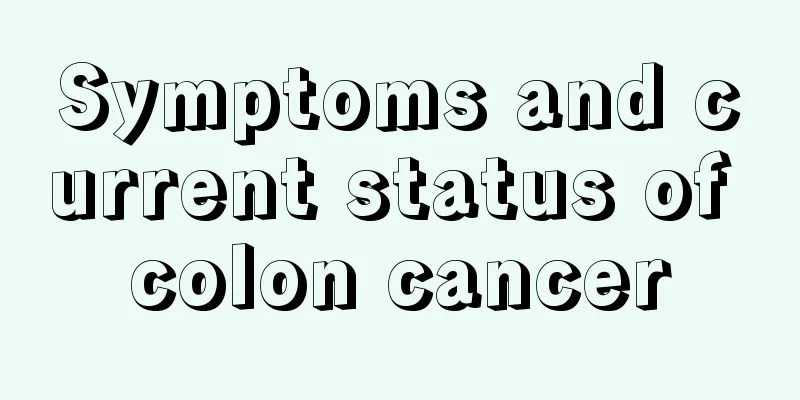What should be paid attention to in postoperative care of thyroid cancer patients

|
What should be paid attention to in the postoperative care of thyroid cancer patients? For cancers like thyroid cancer, surgery is the main treatment method and the only way to cure thyroid cancer. Therefore, if the patient's condition is suitable for surgery, surgical treatment is generally recommended. However, if you want to ensure the effect of treatment, you must do a good job of postoperative care. So what should be paid attention to in the postoperative care of thyroid cancer patients? The following points should be noted after surgery 1. After the patient is fully awake after the operation, he/she should take a semi-sitting position to facilitate breathing and drainage of the incision. If the patient is short of breath, it may be caused by the blockage of the drainage tube, which prevents blood from being discharged and compresses the trachea. If a large amount of fresh blood (more than 200ml) is found to be drained, it is also an abnormal situation and should be treated by a doctor or nurse immediately. 2. Pay attention to the breathing situation, help or encourage the patient to expectorate, so as to prevent sticky phlegm from being retained in the trachea and causing respiratory infection. In addition, if the thyroid tumor is large before the operation, long-term compression of the trachea will cause the tracheal cartilage to soften and lose support, resulting in tracheal collapse and sputum obstruction. In a short period of time, the patient will have difficulty breathing or even suffocation. At this time, tracheotomy should be performed immediately. 3. Pay attention to drinking water. On the day after surgery or the next day, you should drink warm or cold water and liquid food. When eating, you are required to sit or semi-sit and lie down, chew and swallow slowly to prevent choking or inhalation into the trachea. 4. Within 4 hours after surgery, you should pay attention to whether you have high fever, palpitations, sweating, vomiting, or even diarrhea, and whether you have tingling or numbness on your face, lips, hands, and feet. If you have any of the above conditions, you should immediately notify the doctor and nurse to handle it. 5. If you take iodized oil before surgery, you need to continue taking it after the surgery. Do not stop taking it suddenly. After the surgery, start from 15 drops and then reduce it by one drop three times a day until it is reduced to three drops. 6. After the incision heals after the operation, you should pay attention to neck straightening exercises to prevent scar contraction and affect the appearance. You should also follow up regularly and take medication according to your condition. |
<<: How to provide good postoperative care for thyroid cancer
>>: Preoperative and postoperative care for thyroid cancer patients
Recommend
Three stages of the coagulation process
Coagulation refers to the process in which blood ...
What is the cause of knee pain in young people
When knee pain often occurs, most people think th...
Vitamin B anti-mosquito method
Summer is here, and one problem that bothers many...
How long can a patient with swollen feet in the late stage of gallbladder cancer live
Gallbladder cancer is not rare. It is more common...
Effective methods to shorten the labor process
The childbirth process varies for each woman. If ...
How to treat accidental gallbladder cancer after surgery
Accidental gallbladder cancer refers to gallbladd...
How to avoid bacteria when making homemade lipstick
Women who love beauty cannot do without beautiful...
The efficacy and usage of hair essential oil
It is beneficial to use some essential oils when ...
How to differentiate chronic pharyngitis and esophageal cancer
The foreign body sensation of swallowing caused b...
How to treat itchy and red scalp?
The scalp generally does not get sick because it ...
How long does it usually take to determine the cure of early cervical cancer
According to the symptoms of cervical cancer, it ...
Beware of six diseases that may occur suddenly at night in winter
The cold winter is a season when various diseases...
Is farting too much a disease?
Farting is actually a very normal physiological p...
Can dry ice be placed in the refrigerator?
Dry ice is solid carbon dioxide. Many people may ...
Which direction is better for sleeping in the east-west direction
In fact, one-third of our life is spent sleeping....









